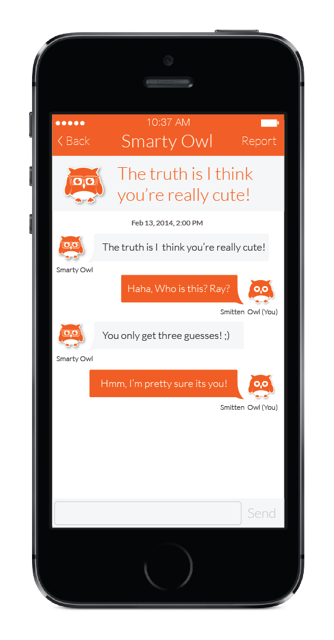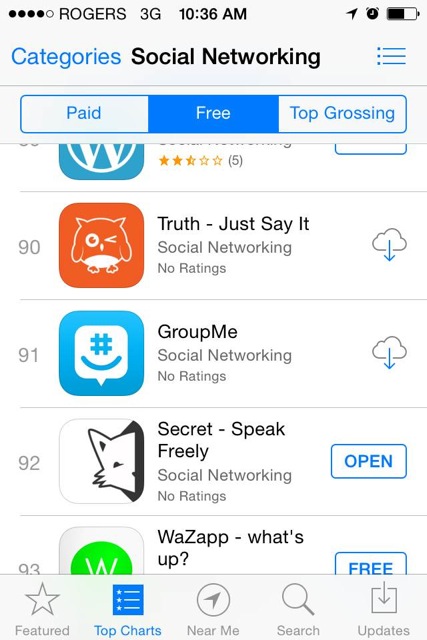The truth is, not all people behind anonymous messaging apps are soulless enablers of hatred and slander. In fact, I would hope that most of them are enthusiastic twenty-somethings like Truth CEO Ali Saheli, who seems to be bent on facilitating authentic conversation between friends, above anything else.
Truth is an app that allows one-to-one, anonymous messaging between friends. Users only need the recipient to be a contact.
Saheli and his cofounder Bio Cho didn’t have a particularly easy entry into the Montreal accelerator program. At FounderFuel’s “Mentor Day”, an event that unofficially kicks off the program, one mentor told the startup that they should quit the idea entirely. He said it would inevitably be used for bullying.
It could, and it likely will at some point, but Saheli told us in an interview that in two to three weeks of the app being live it has been used mainly for flirting between high school and university-aged people. It has also been used for minor, “fun” pranking between friends. Less than five percent of all content has been negative.
They’ve even seen it being used between friends or employees and their bosses, in scenarios where one wants to give anonymous feedback. Sometimes we want to tell our friends the truth, but we’re afraid of the consequences. But hey, it’s 2014! You can just hide behind the anonymity of Truth.
It’s obviously a tough call if this is all “good” or “not good”. We’re taught at a young age just to to tell someone face-to-face if we have feelings for them, or to tell someone if something is bothering us about them. Will apps like Truth, and even the more infamous Whisper and Secret, turn the younger generations into weird, socially maladjusted people who no longer use eye-contact in communication?
Saheli told me Truth will effectively break the ice for me, which can allow me to tell that person that I have feelings for them when the time is right. And I might even figure out pretty quickly if proclaiming my intentions in person might not be such a great idea.
Saheli and Cho, both engineers by trade, initially coded a marketplace for students last year, which they grew to about 8,000 users. It was prevalent on campus like Simon Fraser University, University of British Columbia and Stanford, but the guys eventually decided to put the brakes on it.
“We realized it wasn’t going as fast as we’d hope, so we thought what else can we build with our skills as engineers that would reach so many people?” Saheli told BetaKit. “Marketplaces are different, you have to scale differently, so it was very hyper-local with each university. When we went to Stanford there was no connection between here and there, so we thought ‘wouldn’t it be cool if we could build something where we could message our friends, but have fun with it.'”
On friday, mainly on the heels of a spike in usage from young people in Florida, New York an California, Truth jumped down from the 400th spot in the app store ranking for “social networking” to about 90th, a few spots ahead of Secret.
There is a significant different between Whisper and Secret, two anonymous posting apps that have generated a huge amount of criticism and controversy, and Truth. Whisper and Secret operate by a “broadcasting” function, where anonymous content is posted to a community, kind of like a rumour mill. With Truth, as Saheli said, it’s a more “personalized”, “meaningful, one-to-one” type of anonymous messaging. At any time during the messaging, users can reveal who they are.
The guys at Truth are excited. They’re determined to promptly deal with any sort of malicious use and thus far they haven’t had too many problems. If it gets a lot bigger, I’m sure they’ll start seeing humankind’s less attractive sides, and obviously then they’ll be judged on how it’s dealt with.
“We’re very excited. Its just the beginning and I’m sure there’s going to be new use cases coming up, but what we’ve seen from the last two weeks is that people are coming back and using it.”



